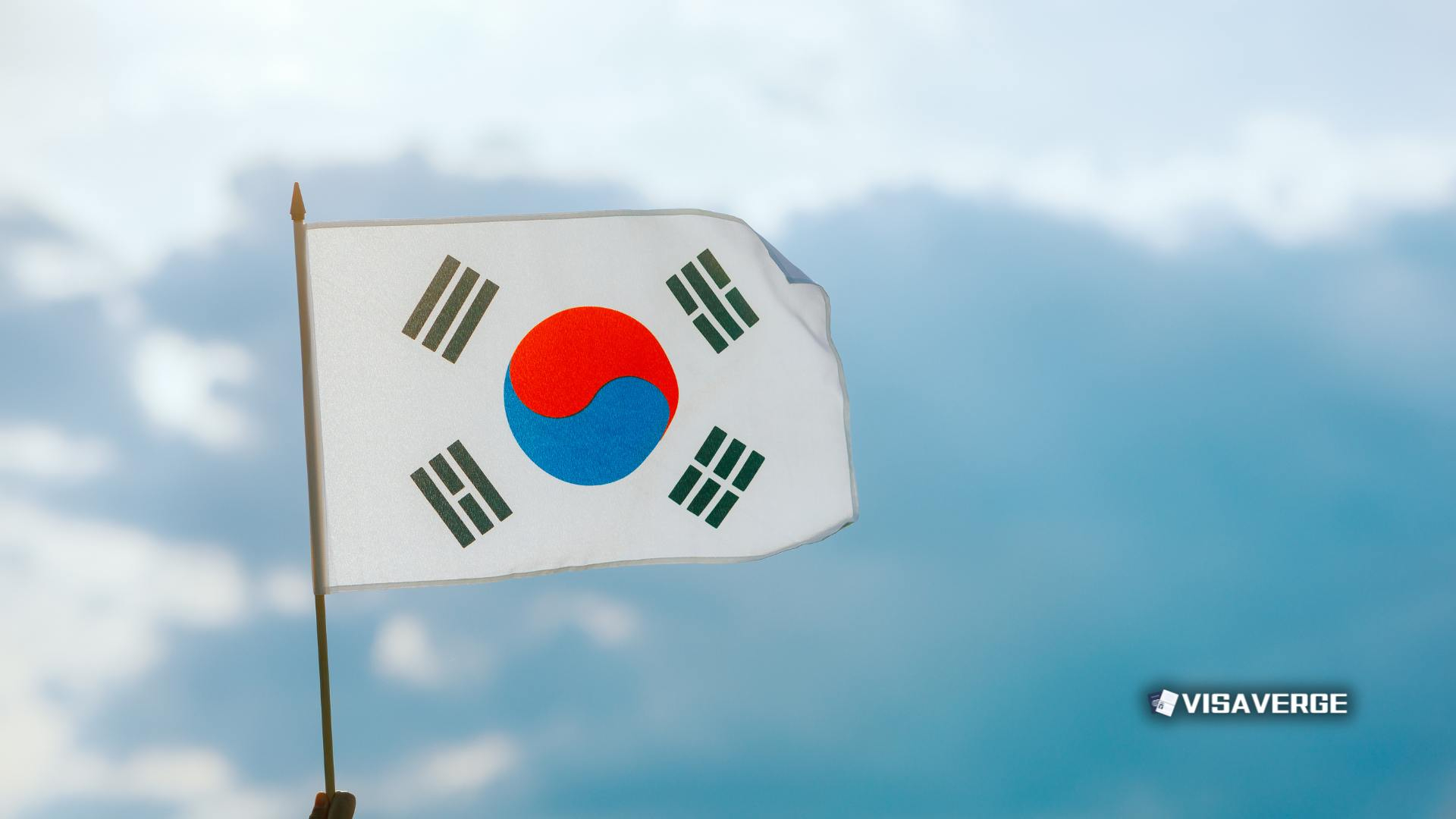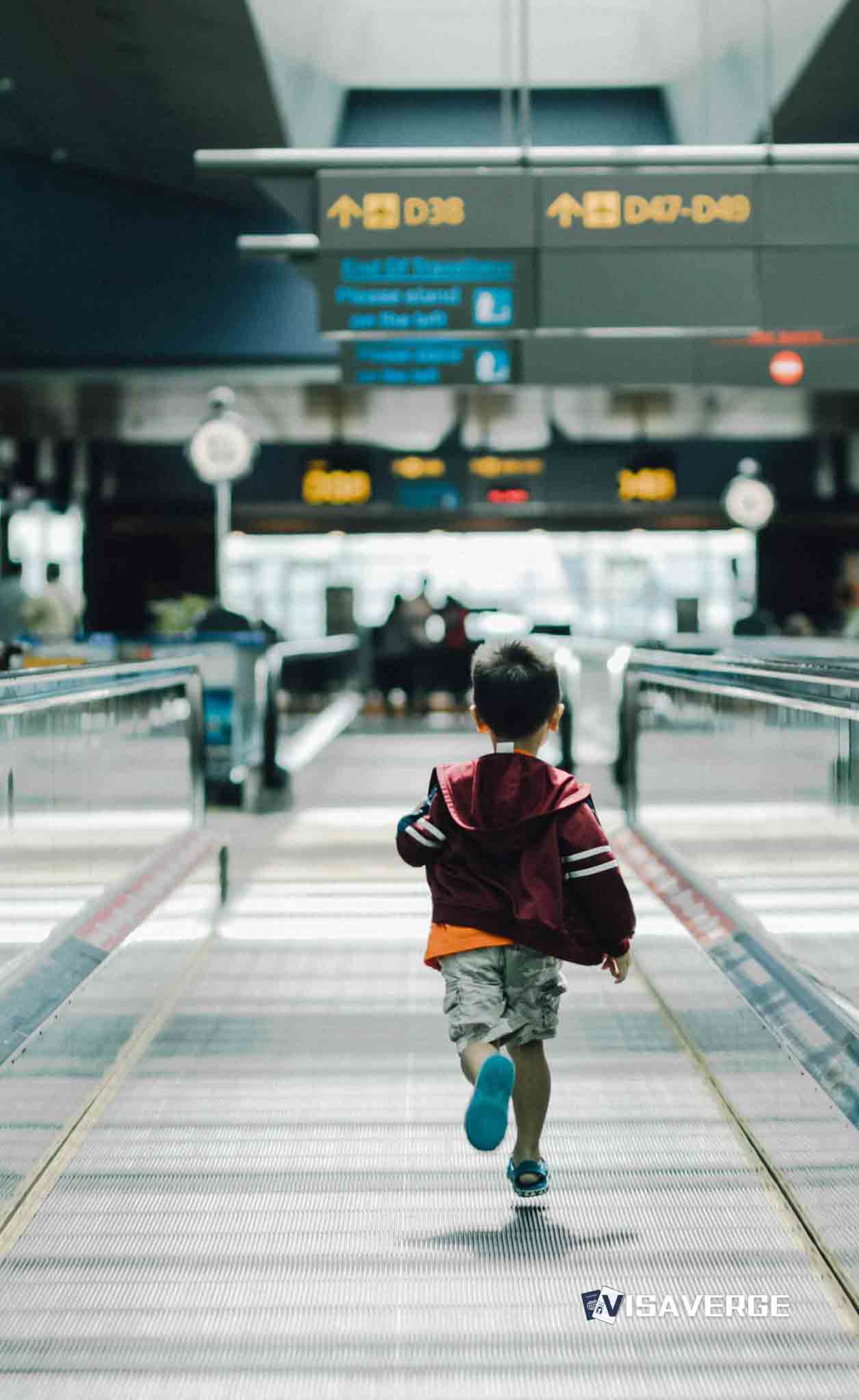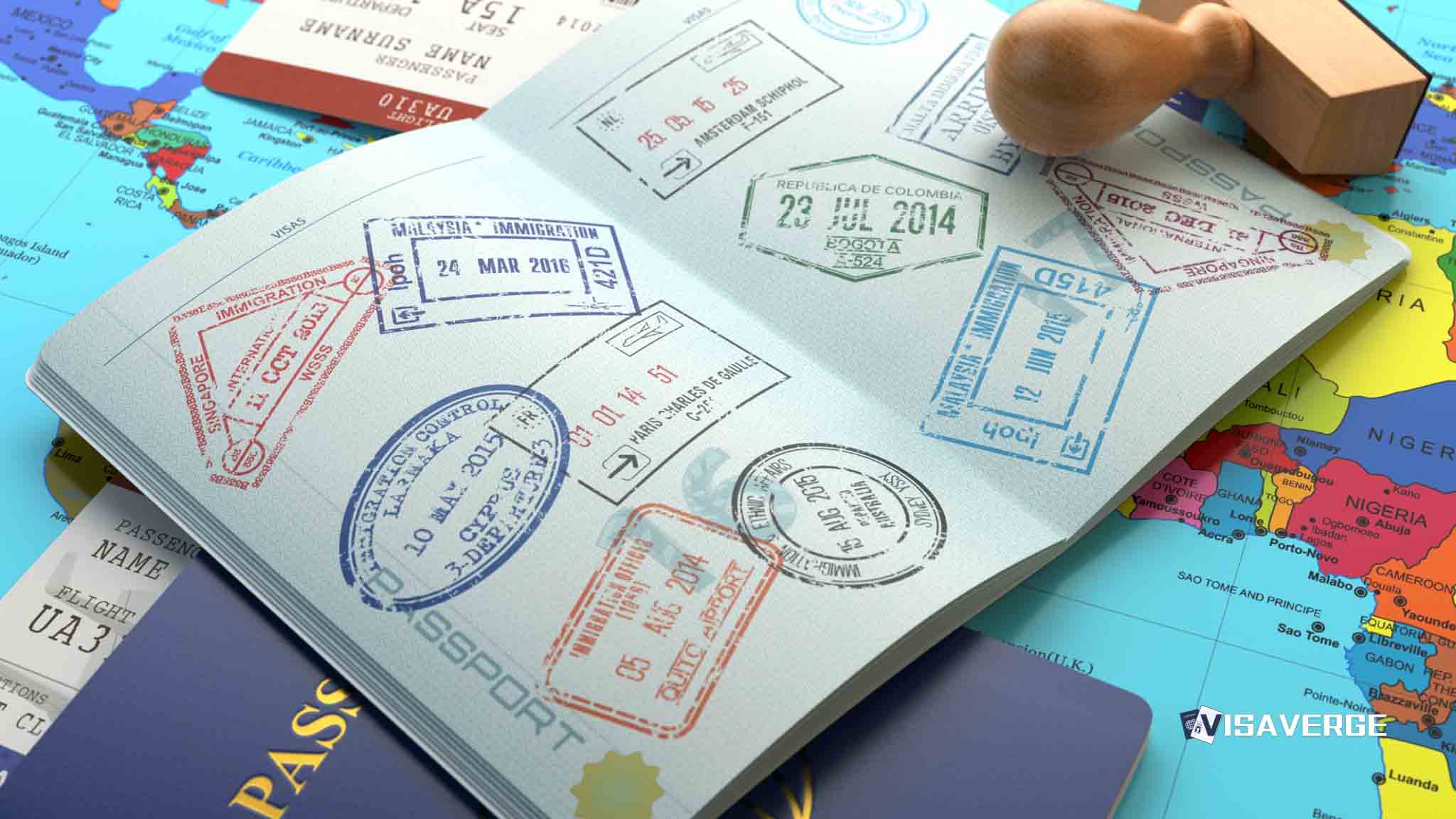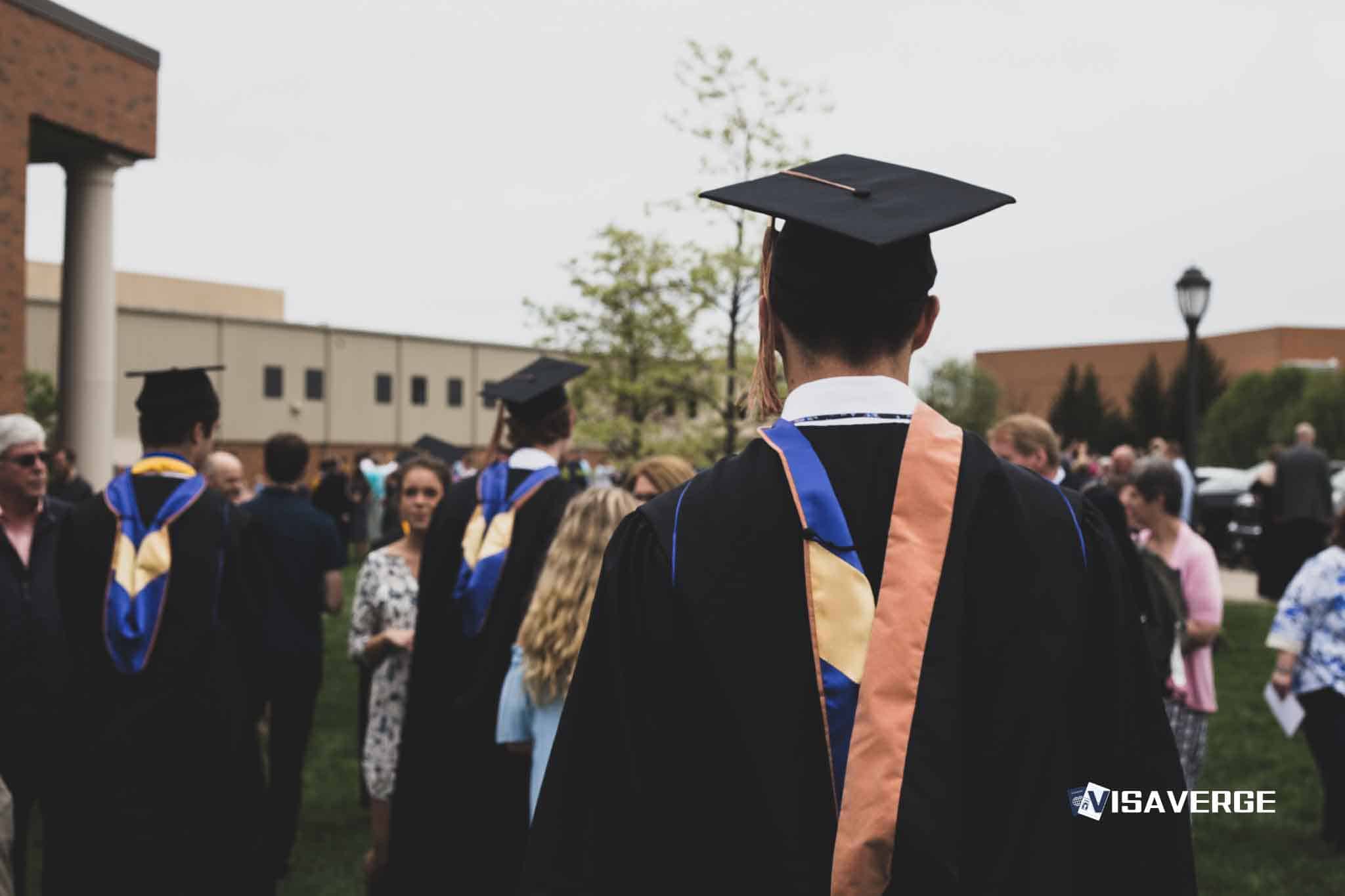Key Takeaways
• Busan aims to attract 30,000 international students by 2028 via the Study Busan 30K Project.
• The new F-2-R visa supports skilled graduates living in Busan’s depopulating districts.
• Minimum bank balance for student visas reduced to KRW 20 million for D-2 and KRW 10 million for D-4.
Busan 🇰🇷 is positioning itself as a top choice for international students by making big changes to its student visa system, working closely with local universities, and introducing new support programs. The city has a clear goal: bring in 30,000 international students by 2028 through its Study Busan 30K Project, more than doubling the current number of 13,000. This goal is important not just for increasing student numbers but for helping Busan grow as a center of learning and high-tech industries. The following sections give a detailed and clear explanation of Busan’s immigration and student visa programs, focusing on the Regional Specialized Visa Program, updated visa rules, support systems for foreign students, and the path from student status to working or permanent residency in Busan.
Overview of Busan’s Immigration Policies for International Students

Busan has embraced a friendly approach to welcoming students from around the world. By working together with 14 local universities and offering programs tailored to the needs of students and the city’s strategic industries, Busan aims to attract talent in areas like semiconductors, batteries, and auto parts. This move will not only bring in skilled technology students but also help Busan address its population decline in key districts such as Dong-gu, Seo-gu, and Yeongdo-gu.
The heart of these efforts is the Study Busan 30K Project, which is supported by a variety of visa programs, scholarships, and services designed to create a smooth path from studying to building a career in the city.
Visa Types Available
Busan and South Korea offer several visa types for students and those who wish to stay after finishing their studies:
- D-2 Visa for Degree Students: This is for students accepted into degree programs at universities. It covers undergraduate, graduate, and doctoral students.
- D-4 Visa for Language Students: This is for students who want to study Korean or attend language training.
– D-10 Job-Seeker Visa: This allows foreign graduates to look for jobs, intern, or receive training after their studies. - F-2-R Regional Specialized Visa: This new visa is for skilled foreign graduates who want to live and work in Busan’s depopulating districts.
Each visa has its own requirements and benefits, helping both incoming students and those planning to stay longer term.
General Immigration Requirements
International students who want to study in Busan must meet several basic requirements:
- School Acceptance: Students must have a confirmed offer from a recognized university or language school in Busan.
- Financial Proof: Students need to show they have enough money to cover tuition and living costs in South Korea. The required bank balance depends on both the visa type and the location of the school (and has recently been lowered).
- Korean Language Ability: While not all programs require it, stronger language skills help students adjust and may be needed for some visas, such as the F-2-R.
- Health and Character Checks: Students usually must submit a health certificate and, in some cases, a police certificate, depending on their country of origin.
Application Procedures and Processing Times
The process for getting a South Korean student visa in Busan involves several steps:
- Apply to the University: Complete the admissions process and receive a Certificate of Admission from the Busan university or language school.
- Prepare Documents: Gather passport, admission letter, proof of funds, health certificate, and other documents required by the Korean Immigration Service.
- Visa Application: Submit a visa application at a South Korean embassy or consulate in your country.
- Processing: The embassy will review your application. Processing times can vary, but most student visas are processed within a few weeks.
- Entry and Alien Registration: Once the visa is approved and you arrive in Busan, you must register as a foreigner and update your address within 90 days of arrival.
For the F-2-R Regional Specialized Visa, application periods are set from May 26, 2024, to April 25, 2025, specifically targeting graduates by August 2025.
Fees and Costs Associated with Immigration
South Korea, and Busan in particular, have updated the minimum bank balance requirements for student visas, making it cheaper for students to apply:
- D-2 Visa (Degree Program): Originally US$20,000, now reduced to KRW 20 million (US$15,100).
- D-4 Visa (Language Course): Originally US$10,000, now reduced to KRW 10 million (US$7,600).
- Regional University Discount: For students applying to universities outside Seoul, the minimum balance is even lower: KRW 16 million for the D-2 and KRW 8 million for the D-4.
- Visa Application Fee: These fees can vary by country but usually range from US$40 to US$60.
Busan has also introduced the Global Busan Scholarship, with each scholarship offering 4 million won (about US$2,970) for living and flight expenses to help students manage their budget.
Rights and Obligations of Immigrants
International students in Busan have the right to study, live, and, in many cases, work part-time during their studies. They must:
- Follow the visa terms, including school attendance and reporting changes of address.
- Have health insurance, which is required for all foreign students in Korea.
- Report to immigration if they change universities, majors, or housing.
- Keep their visa status valid and renew as needed.
Busan and the Korean government take these rules seriously. Failure to follow them can result in visa cancellation or being asked to leave the country.
Pathways to Permanent Residency and Citizenship
Steps towards long-term settlement often start with student visas and move to job-seeker visas or working visas after graduation:
- Transition to Working or Job-Seeker Visa: About 40% of international graduates from Busan universities are expected to get a working or job-seeker visa after finishing their studies by 2028, a big jump from the past rate of 22%.
- Regional Specialized Visa (F-2-R): This visa gives new graduates a way to remain in Busan, provided they meet language and residency requirements. It can often lead to a more stable and long-term residency status.
- Permanent Residency and Citizenship: After several years on work or specialized visas, immigrants may be eligible to apply for permanent residency. In some cases, those who have lived in Korea for a long time and meet integration, language, and income requirements may qualify for citizenship.
Cultural Considerations for Newcomers
Busan is well-known for its friendly people, scenic coastal setting, and relaxed atmosphere compared to Seoul. However, adapting to Korean culture can take time:
- Language Barriers: Many universities offer Korean classes, but basic skills can make everyday life easier.
- Social Etiquette: Respect for elders, politeness, and indirect communication are important social rules in Korea.
- Student Life: Student clubs, cultural festivals, and local community events in Busan can help students feel at home and make new friends.
The Study in Busan Center, opening in 2025, will help students adjust by offering language courses and one-on-one help with visas and daily life.
Employment Regulations for Foreign Nationals
International students may work part-time, but there are restrictions:
- Permitted Hours: Most students are allowed to work up to 20 hours per week during semesters and full time during vacations, with university approval.
- Internship and Training Programs: As part of the Study Busan 30K Project, Busan is linking students with local companies in shipbuilding, manufacturing, and high-tech industries for internships and practical job training, giving students an advantage when they look for full-time work.
- D-10 Visa Improvements: South Korea has improved the D-10 visa so that foreign nationals can intern at a company for up to six months, making it easier to gain valuable job experience.
Healthcare and Social Security for Immigrants
All international students are required to have health insurance. In most cases, students are automatically enrolled in South Korea’s National Health Insurance scheme after registering as a foreign resident. Insurance covers a wide range of medical services but students may also choose private plans for extra coverage.
Social security support is still limited for students, but those who transition to work visas may participate in national pension schemes and other worker benefits as provided by employers.
Education System Overview for International Students
Universities in Busan offer classes in Korean and English, with many programs geared toward science, technology, engineering, and math (STEM) fields. From 2024 to 2028, the city aims to raise the share of foreign students studying STEM from 12% to 30%, reflecting the demand in global industries.
With 14 universities joining forces under Busan’s Study Busan 30K Project, students can choose from a wide range of bachelor’s, master’s, and PhD programs, as well as Korean language and short-term courses.
Policy Changes and Reforms
The Regional Specialized Visa Program (F-2-R) is a standout policy, directly addressing Busan’s shrinking population in certain districts. The government’s move to lower the required bank balance for student and language visas makes it much easier for students from medium-income countries to afford study in Korea.
Visa reforms, targeted student support, and upgraded work pathways mean that by 2028 Busan could double its international student body and become a model for regional talent attraction in Korea.
Recent Immigration Statistics and Trends
- Current International Student Population: About 13,000 in Busan today.
- Target Population by 2028: 30,000 students, with 30% majoring in STEM fields.
- Working Visa Transitions: Goal to increase international graduate job placements from 22% to 40% by 2028.
- Special Visa Quotas: Busan is granting up to 1,000 specialized (F-2-R) visa slots through 2026.
Unique Aspects of Busan’s Immigration Efforts
What sets Busan apart is its focus on connecting students to jobs in high-tech and manufacturing, supporting district redevelopment, and helping newcomers feel at home. The Study Busan 30K Project and Regional Specialized Visa Program are both creative answers to the problems faced by Busan’s older, shrinking neighborhoods and the city’s need for new talent.
Another unique factor is the partnership between city government and local universities, creating a complete environment for foreign students from arrival to graduation and beyond.
Integration Programs and Support Services
Busan provides various services to help international students succeed:
- Study in Busan Center (2025): Offers language classes, visa help, and personal support.
- Global Busan Scholarship: Helps pay for living expenses and flights.
- Internships: Grows opportunities for hands-on work in key Busan industries.
- Career Training: Connects students to area businesses and supports moving from student to worker status.
These services are central to the Study Busan 30K Project and were designed to make Busan a friendly, practical choice for international students.
Bilateral Agreements and Special Arrangements
While the main immigration reforms are city-based, Busan’s actions are supported by national South Korean policies that recognize the role of regional growth. The city may benefit from future agreements between South Korea 🇰🇷 and countries that supply students, such as international student exchanges.
Political and Social Issues
With population decline a key worry in Busan’s older areas, bringing in international students is seen as both an economic and a social solution. Encouraging foreigners to settle in Busan supports local business growth and creates a more lively city. However, adapting to a more international city could also bring challenges in integration and cultural change.
Key Resources
For more information on applying to a university in Busan or for details on the Regional Specialized Visa Program, students can visit the official Korean Immigration Service website.
As reported by VisaVerge.com, these changes reflect Busan’s serious commitment to drawing top global talent, especially in important technology fields, and ensuring newcomers have a smooth path from student to professional.
Conclusion
Busan’s focused steps—lowering visa barriers, adding scholarships, and building support centers—show how a city can grow its economy and culture by welcoming skilled students. For anyone considering studying in Korea or seeking new career opportunities abroad, the Study Busan 30K Project, combined with the Regional Specialized Visa Program, provides a real path to learning, work, and possibly long-term settlement in this dynamic port city. Students and young professionals looking for a friendly environment with lots of support and great job chances in tech fields should consider Busan as a top choice for the next steps in their academic and career journey.
Learn Today
Study Busan 30K Project → A local initiative to increase Busan’s international student population from 13,000 to 30,000 by 2028.
D-2 Visa → A South Korean student visa for degree programs including undergraduate, graduate, and doctoral studies.
F-2-R Visa → A Regional Specialized Visa granting work and residency to skilled graduates in Busan’s specific districts.
Korean Immigration Service → South Korea’s government agency managing visa applications and immigration procedures.
Global Busan Scholarship → Financial aid program providing living and travel support to selected international students in Busan.
This Article in a Nutshell
Busan is transforming its immigration policies to attract 30,000 international students by 2028 through improved visas, scholarships, and career support plans, focusing on high-tech industries and regional revitalization for a vibrant, globally competitive city.
— By VisaVerge.com
Read more:
• Estonia launches new visa programs to attract foreign experts in 2025
• F1 visa rejection rate rises at US Consulate posts
• US Travel Authorization rules to tighten for visa and ESTA in 2025
• UCSB faces wave of F-1 visa revocations affecting international students
• US tourist visa rejections often tied to weak home country links













